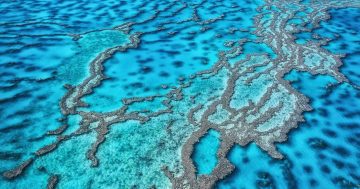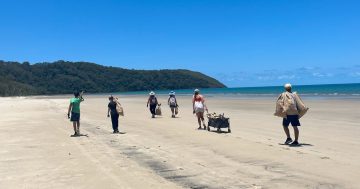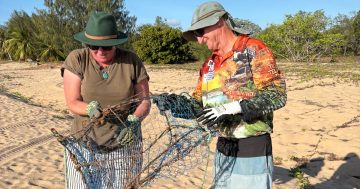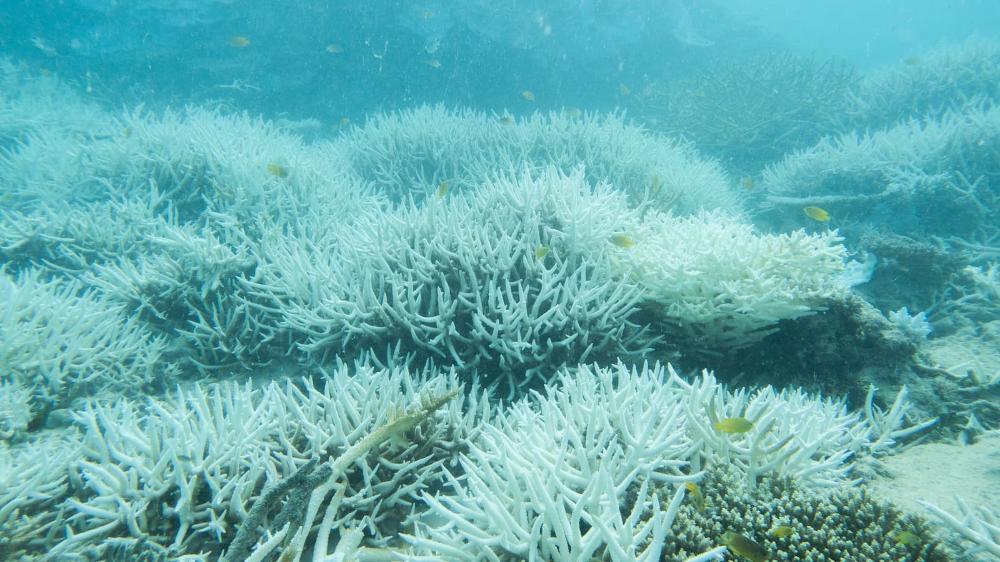
In a paper developed by researchers from Securing Antarctic’s Environmental Future (SAEF), they chronicle how recent extreme ocean heat waves have led to mass coral bleaching of the Great Barrier Reef. Photo: Ove Hoegh-Guldberg.
The United Nations Educational, Scientific and Cultural Organisation (UNESCO) has decided the Great Barrier Reef is not in danger, but a recent paper claims that without action, Australia will be responsible for “the demise of one of Earth’s most spectacular natural wonders”.
At the end of last month, the World Heritage Committee ended its 46th session in New Delhi, India.
While the occasion was momentous, with Nauru becoming the first Pacific state to become party to the World Heritage Convention, disappointment swirled around the committee’s ratification of its draft decision as reported on by Region.
New research from a paper led by Dr Benjamin Henley, claims that recent mass bleaching events coincide with five of the six hottest years in the new 400-year-long record – with 2024 being the warmest on record by a large margin.
“When I plotted the 2024 data point, I had to triple check my calculations – it was off the charts – far above the previous record high in 2017,” he said. “I could almost not believe it. Tragically, mass coral bleaching has occurred yet again this year.
“When you compile all of the evidence we have, it’s the inevitability of the impacts on the reef in the coming years that really gets to me.”
Coral bleaching occurs when stress causes the corals to expel the algae that live in their tissue. The algae give corals their vibrant colours and without them the coral’s white skeleton is exposed.
Stress from environmental disturbances and declining water quality can lead to bleaching, but recent warming in sea temperatures has led to bleaching on a mass scale.
While corals can recover if the trigger for stress is reduced for a significant period, since 2016 the Great Barrier Reef alone has experienced five major bleaching events.
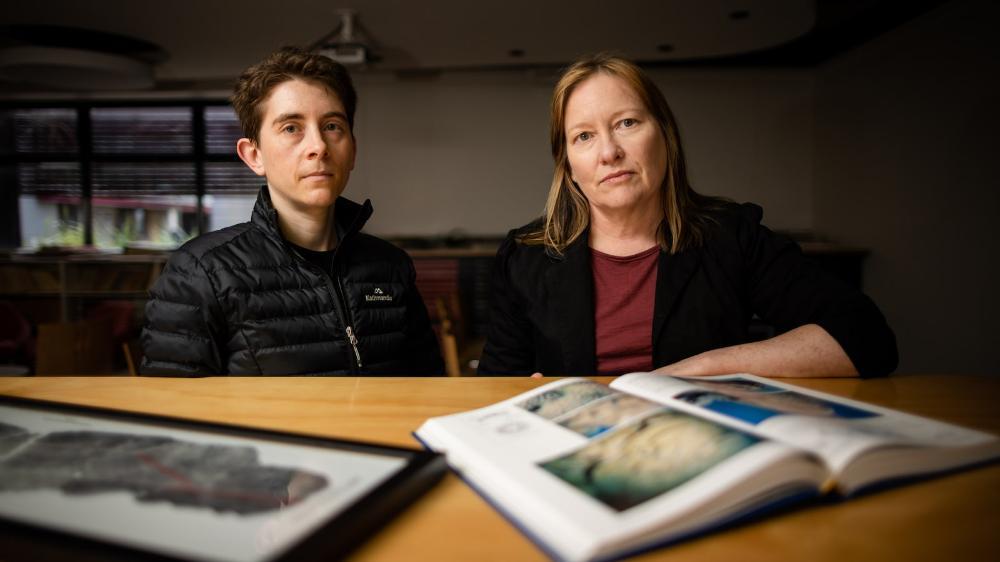
“There is no ‘if, but or maybe’ — the ocean temperatures during these bleaching events are unprecedented in the past four centuries,” said Professor Helen McGregor (R), sitting beside co-author Ariella Arzey (L). Photo: Michael Gray.
Professor Helen McGregor, the paper’s second author, echoed the concerns of her colleague in claiming “the reef’s fundamental ecological integrity and outstanding universal value are at stake”.
“We have many of the key solutions to stop climate change; what we need is a step change in the level of coordinated national and international action to transition to net zero.”
More recently, the Queensland Government appointed Dr Annabelle Bennet AC SC to be chair of the Reef 2050 Advisory Committee.
Appointed by the Queensland and Commonwealth governments, the committee provides advice to state and federal ministers responsible for the Great Barrier Reef. It also facilitates engagement with industry and the broader community on the implementation and review of the Reef 2050 Plan.
Dr Bennett is a highly respected retired judge of the Federal Court of Australia, an additional judge of the Supreme Court of the ACT, and a deputy president of the Administrative Appeals Tribunal.
She is an internationally recognised leader in intellectual property patent law, former chancellor of Bond University and has a range of experience as chair – including the Australian Academy of Sciences roundtables on the World Heritage Convention and Climate Change, and Reef Futures.
“We know that the reef faces numerous threats, and these require coordinated efforts across various sectors to meet and mitigate those threats,” said Dr Bennett.
“By involving industries such as tourism, fishing, and agriculture, we can develop and implement sustainable practices that reduce harmful impacts on the reef, while traditional owner and community engagement ensures that local knowledge and cultural values are incorporated into reef conservation strategies.”


